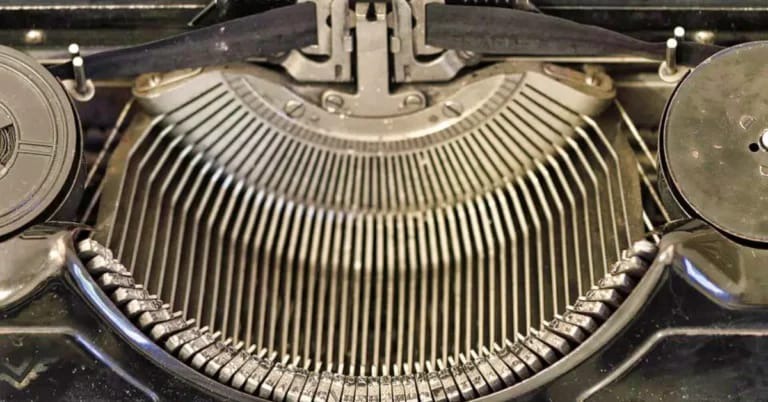In the fast-paced digital age we live in, it’s easy to forget the humble typewriter, a beloved relic from a time long gone. But for many of us in the older generation, the typewriter holds a special place in our hearts. It was an essential tool for writers, journalists, and professionals, leaving an indelible mark on history. Join us on a journey back in time to explore the fascinating world of typewriters and their lasting legacy.

The History of Typewriters
The roots of mechanical writing machines can be traced back to the 18th century, although it wasn’t until the 19th century that typewriters as we know them today were introduced. The Remington No. 1, also known as the Sholes and Glidden typewriter, made its debut in 1873 and became the first commercially successful typewriter. This invention revolutionized the way we put words on paper.
Early typewriters featured a “QWERTY” keyboard layout, a system that is still used on our computers and devices today. This layout was designed to prevent frequently used letter combinations from jamming in the mechanical typewriters of that time.
Impact on Communication and Society
The invention of the typewriter had a profound impact on communication and society as a whole. Here are some ways in which it transformed the world:
- Speed and Efficiency: Typewriters enabled faster writing and document production. Professional typists could now create papers at a much higher speed than through handwritten copies, boosting office and commercial productivity.
- Document Standardization: With the advent of typewriters, documents gained a new level of consistency and uniformity. Each character was created with precision, making typewritten papers especially valuable for legal and official purposes.
- Journalistic and Publishing Advancements: Journalists and writers found an invaluable ally in the typewriter. They could produce text more quickly, leading to the rapid transmission of news and the flourishing of newspapers as a primary source of information.
- Accessible Writing: Typewriters made writing more accessible to a wider range of people. As the cost of typewriters decreased over time, more individuals were able to partake in professional writing and correspondence.
- Archiving and Preservation: Typewritten texts proved to be more durable than handwritten manuscripts. The enhanced archival quality of these typewritten documents facilitated the preservation of historical records and literary works.
A Lasting Legacy
While computers and digital devices have largely replaced typewriters in our modern world, their legacy still lives on in various forms:
- Vintage typewriters have become highly sought-after collector’s items and antiques, treasured for their unique designs and historical value.
- The sound of clacking typewriter keys and the tactile experience of typing evoke a strong sense of nostalgia. Some authors find inspiration in the physicality of using typewriters to bring their words to life.
- Artists and designers incorporate typewriter writing into their creations, merging classic beauty with contemporary innovation.
- Typewriters have made appearances in literature, movies, and art, symbolizing different eras and imbuing a timeless quality.
- Writing retreats and workshops sometimes offer typewriters as tools to enhance creativity and focus, allowing participants to draw from the rich tradition of typewriter-based writing.
The typewriter, a mechanical marvel that revolutionized communication, remains an enchanting piece of history. Its evolution from rudimentary prototypes to sleek and practical devices has transformed the way we create and consume written information.
While we may be living in a digital age, typewriters continue to inspire writers, artists, and enthusiasts alike. They serve as a tangible reminder of the profound connection between the physical act of typing and the creation of words on paper, forging an everlasting link to our literary heritage.
So next time you stumble upon a typewriter, take a moment to appreciate the legacy it represents, and perhaps let it transport you back to a simpler, yet equally captivating, time.



